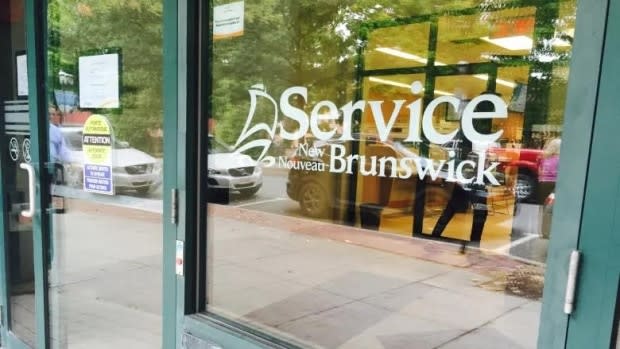Property tax assessments to arrive next week after being split from bills
Next week will mark the arrival in your mailbox of a long-discussed change to property tax assessments.
Service New Brunswick has split assessment notices — the official evaluation of the tax value of a property — from the bill that the owner must pay, creating two separate documents.
"We're happy to say that on Oct. 1, New Brunswickers will receive their first assessment notice," Lisa Dionne, the executive director of Service New Brunswick's Property Assessment Services, said Friday.
"With this separation this will allow us to have a more transparent, more clear mandate of what we need to deliver to New Brunswickers."
Next week's notice won't include the actual tax amount owners will have to pay in the spring, because tax rates won't have been set by local governments yet.
The change will give the Crown corporation more time to review complaints and reconsider assessments before the owners receive their bills and must pay up.
System revamp
Under the current system, both the assessment and the bill have arrived in March. In some cases the May 31 deadline for paying arrived before Service New Brunswick could complete a review into an owner's complaint.
Owners were required to pay even if the dispute was not resolved.
The 30-day period to apply for a review remains unchanged but officials will now have a lot more time to take a second look at a property before the owner has to pay.
Separating property assessment notices and property tax bills from each other was one of 25 recommendations made by New Brunswick Auditor General Kim MacPherson in 2017, following her review of that year's property assessment and tax controversy.
New Brunswick was one of only two provinces without separate assessment notices and bills.
Property tax snafu
In 2016, a new assessment system using aerial photography and sophisticated mathematics to evaluate properties was rushed into service ahead of schedule for the 2017 tax year.
It was expected the system would identify undervalued properties and unlock new tax revenues for the province.
Instead it generated thousands of inflated property tax bills, and Service New Brunswick managers were then caught making up renovation amounts on some properties to justify some of the larger increases.

More than 18,000 New Brunswick property owners challenged their assessments that year because of the scandal, a mess that took months to untangle.
The splitting of assessments and bills is also triggering a change in timelines for municipal budgets, which rely on property tax revenue.
The government is looking at moving up the deadline by which cities, towns and villages must submit their annual budgets to the province from Nov. 30 to Nov. 15.
A draft regulation was posted online before the provincial election and is expected to be brought back after a new cabinet is sworn in next week.
For municipalities to meet that earlier Nov. 15 deadline, Service New Brunswick is committing to getting tax base information — the total assessed value of all properties within the municipalities — to mayors and councils next month.
Quicker data
Margot Cragg of the Union of Municipalities of New Brunswick said cities, towns and villages need other data from the province, including road maintenance costing agreements, policing data and information from regional services commissions to set their budgets in time.
"There's a number of folks who need to provide numbers that then get plugged into the budgets," she said.

Once municipalities set their local property tax rates, Service New Brunswick will use that information to calculate the individual tax bills to be sent to owners in March.
Next week's assessment notices won't mark the end of Service New Brunswick's response to the 2017 assessment fiasco.
MacPherson's recommendations also included a more detailed assessment notice that would help New Brunswickers better understand how the value of their property had changed over time.
This year's notice won't contain that information. Dionne said Service New Brunswick is still working on it and it will be implemented in years to come.


